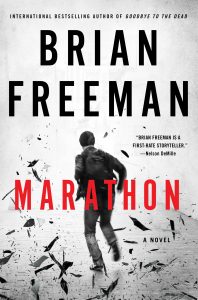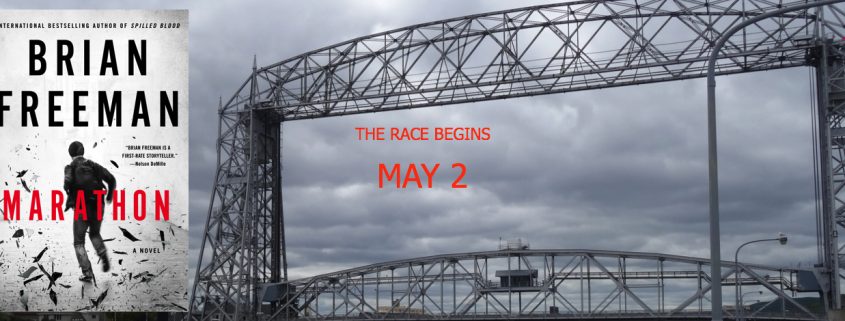MARATHON: The Echo Chamber
Are we more divided than ever before?
Sometimes it seems that way. Tragedy doesn’t bring us together the way it once did. Too often, rather than turning to each other for support, we retreat to separate corners and to our own political philosophies.
The rise of social media seems to have accelerated this divisiveness. If you agree with someone, social media is an echo chamber reinforcing what you think. If you disagree, it’s an information superhighway crowded with road rage. That’s why I chose to make social media an important theme in MARATHON – because sites like Twitter and Facebook have become players in shaping how we react to the world.
 Look at Twitter, for example. There’s something about that 140-character limit on Twitter posts that washes away restraint and encourages people to hurl spicy little fireballs at one another. As one of my characters in MARATHON complains to her husband, “I always know when you’re looking at Twitter. Your face gets so angry.” She’s right. Twitter can be a perfect little outrage factory.
Look at Twitter, for example. There’s something about that 140-character limit on Twitter posts that washes away restraint and encourages people to hurl spicy little fireballs at one another. As one of my characters in MARATHON complains to her husband, “I always know when you’re looking at Twitter. Your face gets so angry.” She’s right. Twitter can be a perfect little outrage factory.
Social media not only makes us angrier, it also makes it easier for us to leap to the wrong conclusions. That’s especially true in the aftermath of tragic events. Information spreads lightning fast – but so does misinformation. What starts out as news quickly becomes an online breeding-ground for rumor and speculation, and the results can easily spiral out of control.
Stride doesn’t just have to solve a murder in MARATHON. He also has to deal with a powder keg of online paranoia that threatens to burst from the virtual world into the real world of Duluth.




